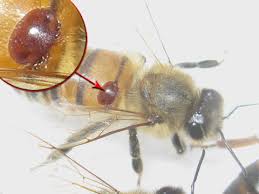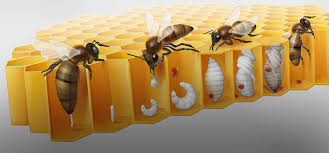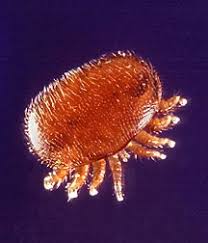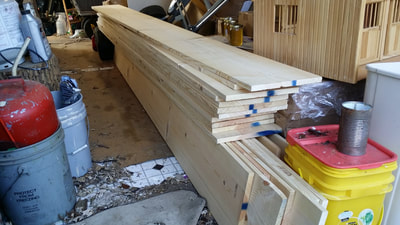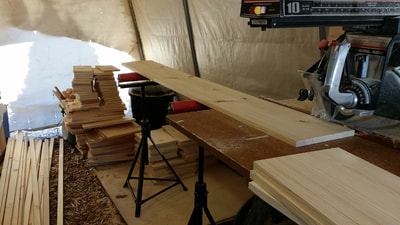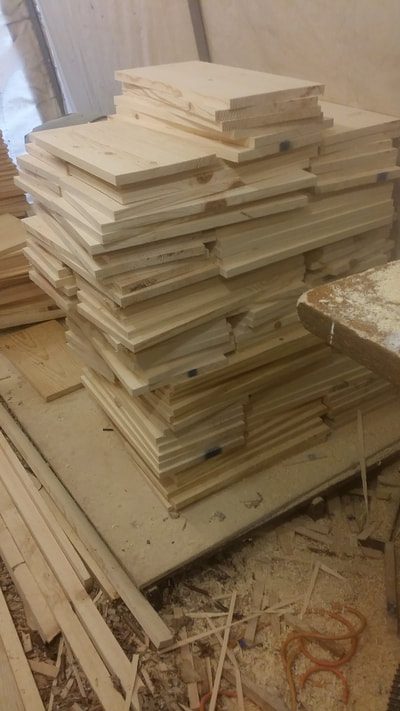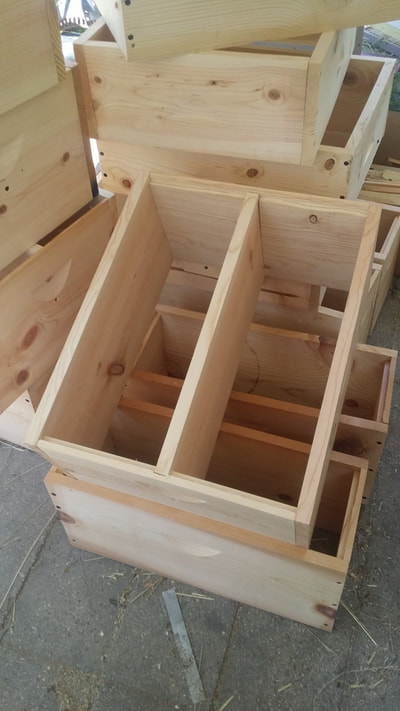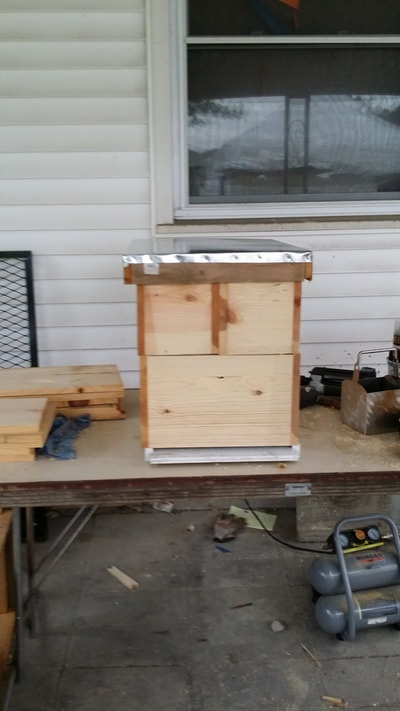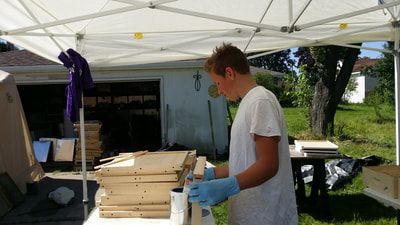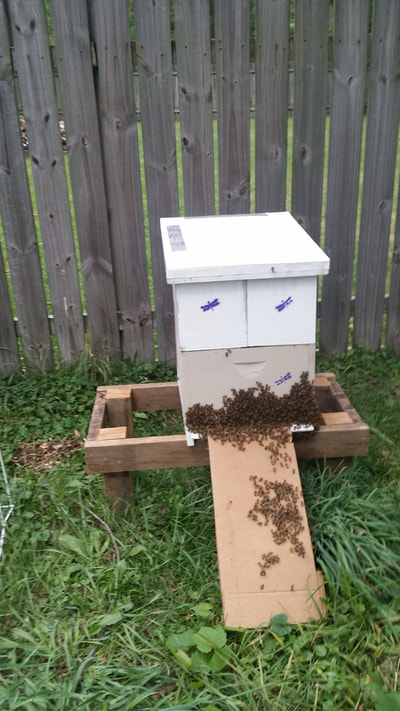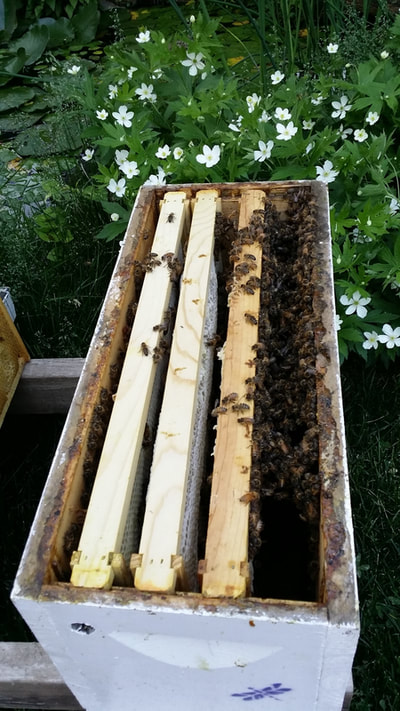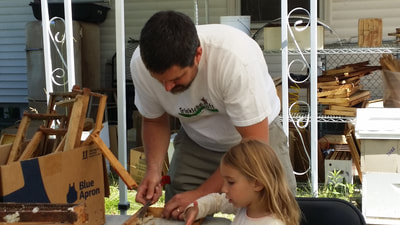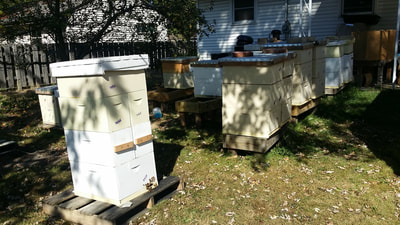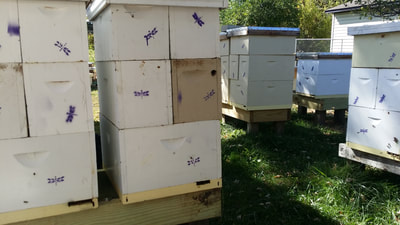Sustainability
In the modern era of bee keeping, we are not able to continue with the status quo.
Since the early 1900's bee keepers in the northern part of the country have been replacing their over winter losses by purchasing bee packages and nucleus hives from bee and queen producers in California and southern states. For Most of the 20th century this was a cost effective option. At Dragonfly Farm the price of these packages have doubled in the last 5 years due to the high demand for bees from almond growers and new backyard beekeepers. Our over winter loses have increase by more than 70%.
Three different studies, in the last couple of years, found that 80% of the package bees purchased die within the first year. These packages are full of mites and can not survive our winter.
Three different studies, in the last couple of years, found that 80% of the package bees purchased die within the first year. These packages are full of mites and can not survive our winter.
The Veroa mite is the major health issue affecting the honey bee.
The mite doesn't kill the bee, it effects their immune system. Because of this, the parasites and viruses that the bees have adapted to over the millennia are now able to effect the health of the bees. Someone who wishes to keep bees today can no longer leave bees to their own development. They must have a mite treatment protocol to keep the bees healthy or they are doomed for failure.
Back to the future for our farm
In the earliest days of bee keeping in the United States, beekeepers made there own queens and over wintered nucleus colonies. They developed bees that were easy to work with and produced lots of honey. As an example of selective breeding, Archaeologists have recently discovered bee hives in Israel that are over 3,000 years old. https://www.livescience.com/6555-beehives-biblical-israel-discovered.html The genetic material they found in the hive determined that the bees where not a local bee, but a bee that was from Turkey. They didn't have mites to content with at that time. They were just looking for a bee that was easy to work with and produced lots of honey.
Today as a small honey producer, we can no longer afford to replace our over winter loses with package bees. These packages bees are full of mites and don't survive our winter. Through research and hard knocks, we are developing our own locally grown queens that can survive our winter and be mite tolerant. This is a slow process through selective breeding and active hive management. We have started a more active mite treatment protocol and are committed to using organic and natural mite treatments. Following the mite treatment protocols and breeding programs recommended through the research of Randy Oliver of scientific beekeeping https://youtu.be/IX3Tz5_uaMc, Dr. Meghan Milbrath www.sandhillbees.com/education and Micheal Palmer's method of his Sustainable Apiary https://youtu.be/nznzpiWEI8A we'll grow our apiary into the future.
Our goal is to develop mite tolerant nucleus colonies through selective breeding that will be used to support our production hives, our queen rearing program and honey production.
Today as a small honey producer, we can no longer afford to replace our over winter loses with package bees. These packages bees are full of mites and don't survive our winter. Through research and hard knocks, we are developing our own locally grown queens that can survive our winter and be mite tolerant. This is a slow process through selective breeding and active hive management. We have started a more active mite treatment protocol and are committed to using organic and natural mite treatments. Following the mite treatment protocols and breeding programs recommended through the research of Randy Oliver of scientific beekeeping https://youtu.be/IX3Tz5_uaMc, Dr. Meghan Milbrath www.sandhillbees.com/education and Micheal Palmer's method of his Sustainable Apiary https://youtu.be/nznzpiWEI8A we'll grow our apiary into the future.
Our goal is to develop mite tolerant nucleus colonies through selective breeding that will be used to support our production hives, our queen rearing program and honey production.

